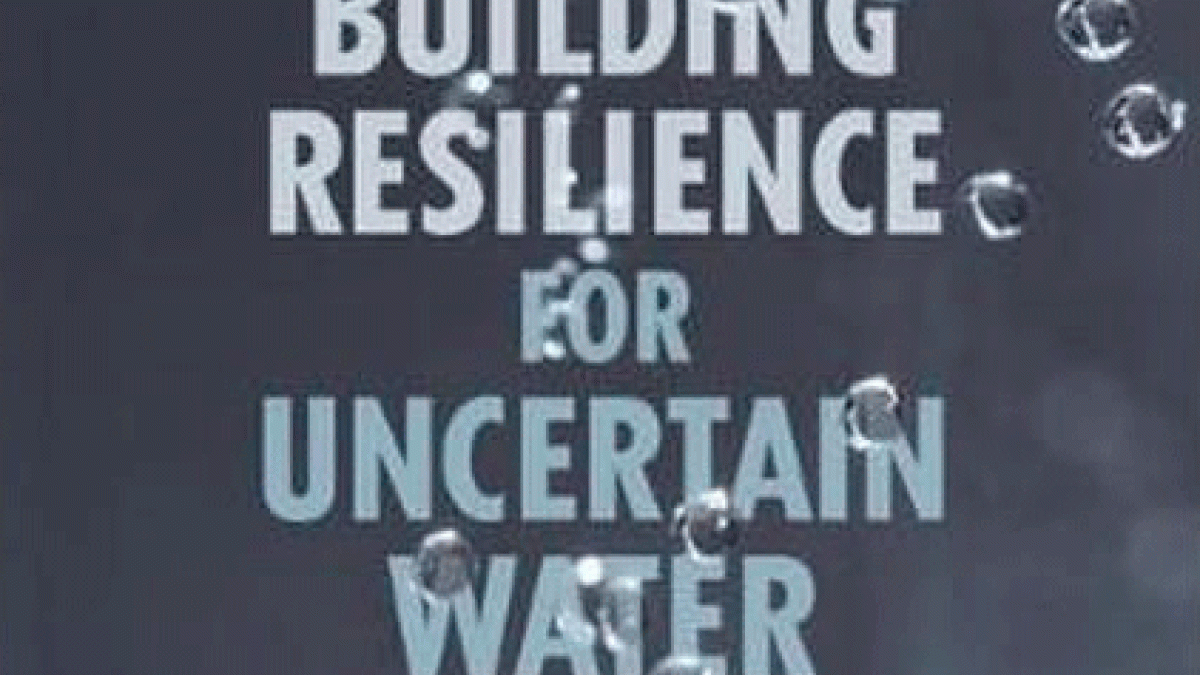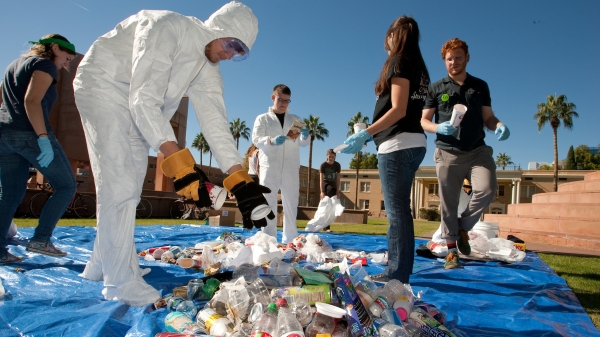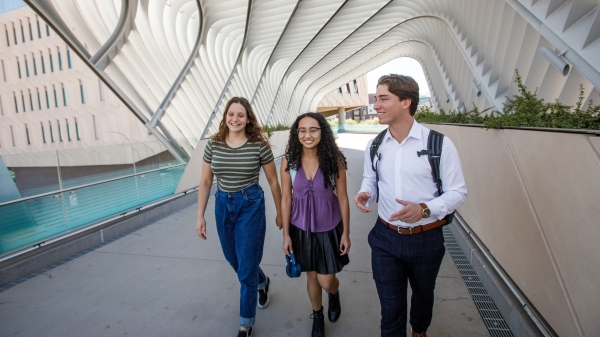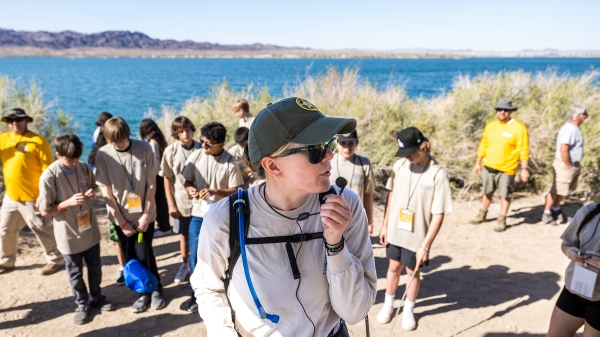New book by ASU professor looks to create resiliency for future water usage

As large swaths of the country grapple with drought, a new book looks to how to build resiliency in unsure times.
"Building Resilience for Uncertain Water Futures" is the most recent work by Patricia Gober, research professor at Arizona State University’s School of Geographical Sciences and Urban Planning and a senior sustainability scientist in the Julie Ann Wrigley School of Sustainability. Recognized nationally for her work in water resource management, her new book continues her legacy at a critical moment in time. Gober provided some insights into her latest work and the need to balance the idea of climate change with human adaptation.
Question: What is the premise of your new book?
Answer: That business-as-usual water science, management and policy pose existential threats for the global economy, environment, society and health. The root cause of today’s water problems is not climate change, but the human capacity to manage it.
Q: What inspired you to write this book? Why now?
A: I taught a water policy class in the U.S. and Canada from 2007-2017. Students accepted my shift in focus from climate change to human adaptation. They were able to see water problems as the result of human actions and therefore within their control. After 10 years, I had enough case studies and local narratives to say that global water management is a human policy problem, not just a matter of changing climate and hydrology.
Q: As parts of the country struggle with droughts, how does this impact water resource management techniques, and what do you hope to see implemented for water management?
A: Press coverage emphasizes extreme events (e.g. floods and drought) and their immediate human consequences. When we look more carefully at events like California’s recent drought or Houston’s floods, we find lack of preparedness, failure to plan, and concentration of losses among the most vulnerable populations. What we can learn from these events is the need to expect the unexpected, prepare for surprise and learn to manage uncertainty rather than be paralyzed by it.
Q: Are you worried or hopeful in terms of the future of water resource management?
A: I see positive energy in many parts of the global water sector, but worry that it will be too late. We need to make decisions now to avert crisis 25 years from now. These decisions include building infrastructure, technological advances, conserving water, managing growth and participating in cooperative agreements.
Q: What is the most important idea you hope readers will take away from your book?
A: Careless management of water threatens our economy and society. This is a global issue. De-emphasize the role of a changing climate and focus on lowering the risks in existing water systems.

Gober is a research professor in the School of Geographic Sciences and Urban Planning and senior sustainability scientist in the Julie Ann Wrigley School of Sustainability at Arizona State University. She is also emeritus professor in the Johnson Shoyama Graduate School of Public Policy at the University of Saskatchewan in Canada. She is a fellow of the American Association for the Advancement of Science (2008) and of the Association of American Geographers. In 2008, she received the Prince Sultan Bin Abdulaziz International Prize for Water in the Water Resources Management and Protection division.
More Environment and sustainability

Confusion complicates US recycling efforts
In most major cities and buildings, recycling bins can often be found alongside trash bins in an effort to encourage recycling.…

ASU empowers students to build a thriving global future
At Arizona State University, leadership has made tremendous efforts to create programs and initiatives aimed at supporting a…

Colorado River becomes an outdoor classroom for these middle school students
Griffin Freburg doesn’t usually look forward to science class. But on a sunny day in March, the eighth grader changed his tune.…